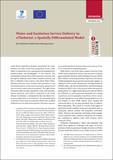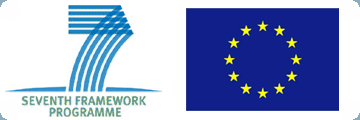|
South African legislative and policy frameworks for water services are some of the most progressive in the world. Water is considered to be a social good and fundamental to transformation and development in the country. The Constitution of South Africa (1997) provides everyone with the right to sufficient water within available resources and this is reflected in the country’s Free Basic Water Policy. However free basic water and free basic sanitation are not provided equally or evenly across South Africa and provision does not always meet national standards. The rights based discourse which has been adopted for water and sanitation service provision, and which is enshrined in the South African Constitution, is tempered by the neo-liberal cost-recovery approach to service delivery. The commodification of services means that not everyone will be able to afford sufficient access to water and sanitation. This raises concerns as to whether the focus of service delivery is on cost-recovery or on social and environmental justice.
South Africa is one of the most unequal countries in the world, facing a persistent and by some measures widening gap in inequality (Pieterse, 2010: Seeking & Nattrass, 2005). Both national and local government experience the tension of addressing both the pro-growth and pro-poor agenda, as reflected in the Growth, Employment and Redistribution (GEAR) policy and the Reconstruction and Development Programme (RDP),and it is this tension which underpins the juxtaposition of a rights based discourse and neo-liberal cost-efficiency in service provision.
|
Recent Chance2Sustain Publications |
|
|
|
|
|

